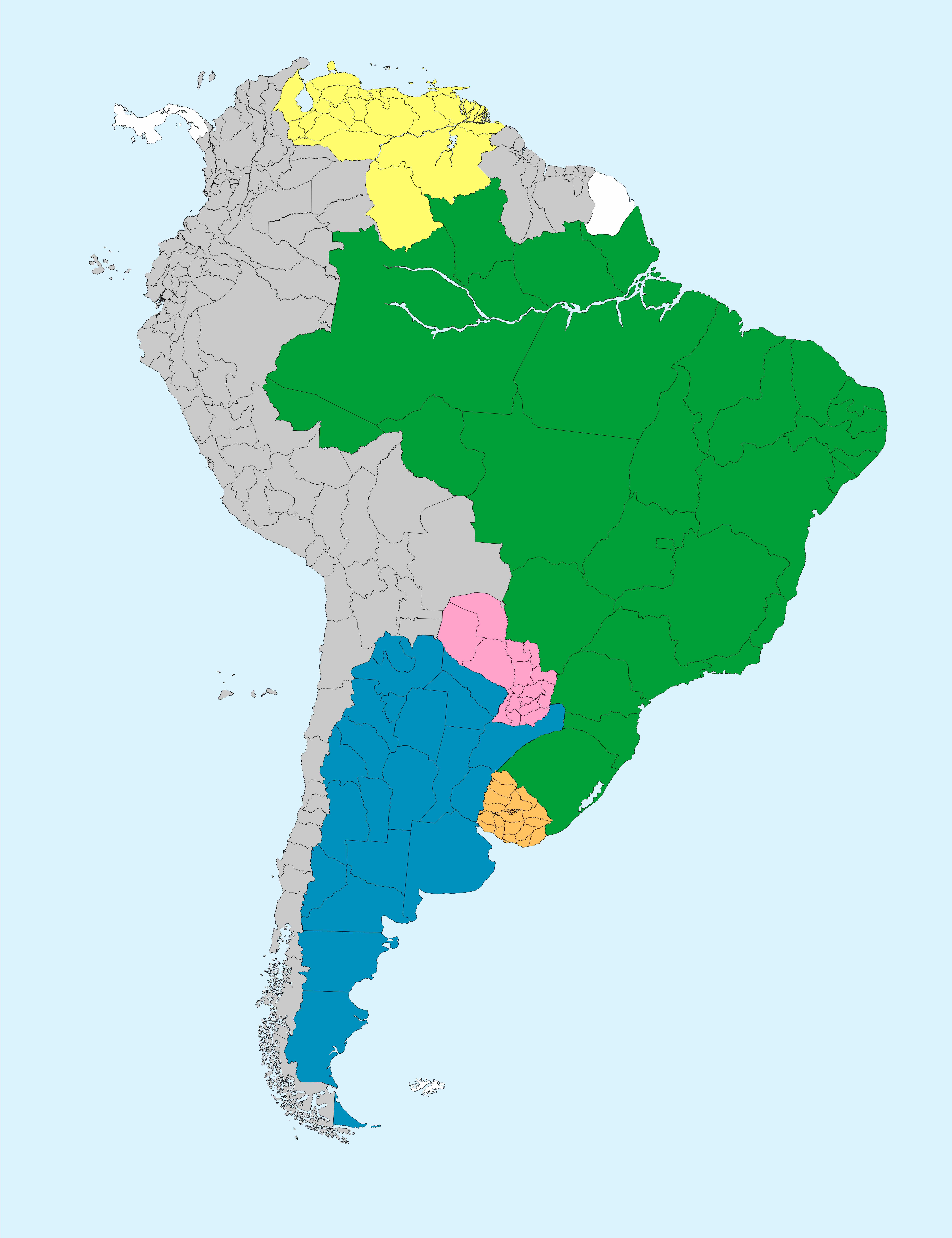MERCOSUR
Mercosur is an economic and political agreement among Argentina, Brazil, Paraguay, Uruguay, and Venezuela . Established in 1991 by the Treaty of Asunción, it was later amended and updated by the 1994 Treaty of Ouro Preto.

Mercosur Member Countries
Mercosur has 5 full member countries (Argentina, Brazil, Paraguay, Uruguay, Venezuela), and 2 Associate members (Bolivia, Chile).
The purpose of Mercosur is to promote free trade and the fluid movement of goods, people, and currency. The official languages are Guaraní, Portuguese and Spanish. Mercosur acts as a full customs union and works toward a continuing process of South American integration into the Union of South American Nations. The program also proposed the Gaucho as a currency for regional trade.
The founding of the Mercosur Parliament was agreed at the December 2004 presidential summit.
Objectives
- Mercosur seeks the free transit of produced goods, services, and factors among the member states. Among other things, this includes the elimination of customs rights and lifting of non-tariff restrictions on the transit of goods or any other measures with similar effects.
- Mercosur seeks to fix a common external tariff (CET), adopt a common trade policy with regard to nonmember states or groups of states, and coordinate positions in regional and international commercial and economic meetings.
- Mercosur seeks to coordinate macroeconomic and sector policies of member states relating to foreign trade, agriculture, industry, taxes, monetary system, exchange and capital, services, customs, transport and communications, and any others they may agree on, in order to ensure free competition between member states.
- Mercosur seeks to commit to the integration process by making the necessary adjustments to member state's laws in pertinent areas. The common market will allow (in addition to customs unification) the free movement of manpower and capital across the member nations. Because member states will implement the trade liberalization at different speeds, during the transition period the rights and obligations of each party will initially be equivalent but not necessarily equal.
Trade and Economy
Intra-Mercosur merchandise trade (excluding Venezuela) grew from USD 10 billion at the inception of the trade bloc in 1991, to $88 billion in 2010; Brazil and Argentina accounted for 43% of this total. The trade balance within the bloc has historically been tilted toward Brazil, which recorded an intra-Mercosur balance of over $5 billion in 2010. Trade within Mercosur amounted to only 16% of the four countries' total merchandise trade in 2010, and trade with the European Union (20%), China (14%), and the United States (11%) was of comparable importance.
Exports from the bloc are highly diversified, and include a variety of agricultural, industrial, and energy goods. Merchandise trade with the rest of the world in 2010 resulted in a surplus for Mercosur of nearly $7 billion; trade in services, however, was in deficit by over $28 billion.
The bloc comprises a population of more than 270 million people, and the combined Gross Domestic Product of the full-member nations is in excess of $3 trillion a year according to the International Monetary Fund (IMF), making Mercosur the fifth-largest economy in the world. It is the fourth-largest trading bloc after the European Union.